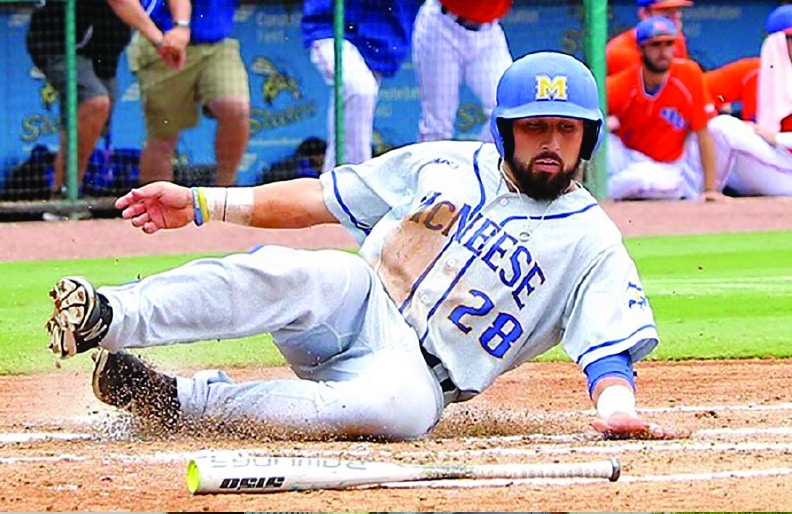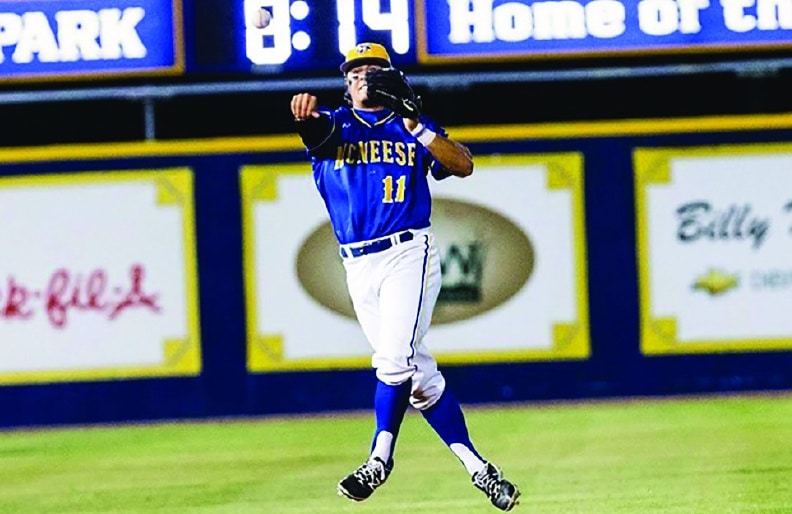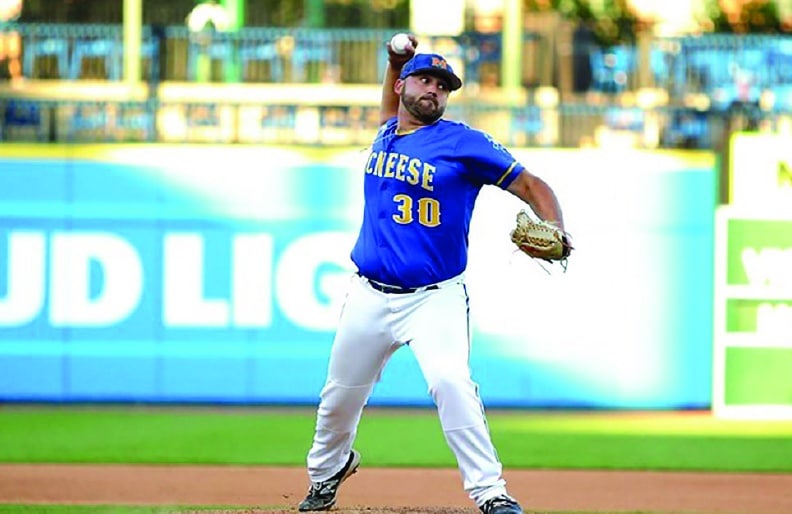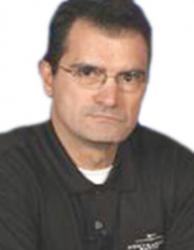It’s fun blowing bubbles, I guess.
It’s even better sipping on something with bubbles.
It’s no fun being on the bubble.
The McNeese Cowboys can attest to that, as they sat outside the lines looking in, hoping and waiting for an invite to a select private party known as the NCAA Collegiate Baseball Tournament. The call to the Cowboys never came, and their bubble was burst on the best season in head coach Justin Hill’s four-year tenure.
“Obviously [it’s] very disappointing, but it doesn’t take anything away from what our guys did this season. We were certainly worthy to play in the post-season and the NCAA Tournament, but it just didn’t work out for us,” Hill said, fresh off winning his first Southland Conference Coach of the Year honor.
McNeese was the battle-tested regular season Southland Conference champion, winning the marathon that is the months of hot, dusty league play. But that only earned them a No. 1 seeding in the conference post-season tournament. To take all the guess work out of the NCAA selection process, the Cowboys had to win the SLC tournament as well to secure an automatic bid.
The question of regular season versus tournament champion in baseball and basketball, and which is more deserving of the cleared path to the NCAA tournaments, has always chapped my cowhide.
Whether it’s a Power Five conference, mid-major or the smaller leagues, such as the Southland, you tell me who is more worthy of post-season honors: the team that prevailed over 14 to 16 weeks of competition or the club that shoots through the pack on the backstretch, gets on a run and comes out on top over one weekend?
I’d take the marathon runner over the sprinter any day as the proven best in any league.
The NCAA doesn’t see it that way, and it hurts the smaller two-bid leagues, such as the Southland, Sunbelt and many others. The SEC, BIG 10, PAC 12, BIG 12 and ACC will get five to seven or even eight teams into the NCAA, from their regular season champs to the tournament victors to the top of the order with 30-plus wins.
What happens then is a 20-32 Texas Southern gets a regional bid to play LSU in Baton Rouge by virtue of their SWAC Tournament title or UMBC (University of Maryland-Baltimore County), with a suspect 23-23 record, earns an invite for a weekend’s worth of work.
Meanwhile, a 37-20 McNeese team that won 22 of 30 SLC games and was 22-5 at home stays home.
Hill, in his best diplomatic tone, sees both sides of the debate between season-long champs versus weekend tournament winner. “I think it’s easier this year to be for it [awarding the automatic bid to the regular season champion] than in past years. One of the things a conference tournament does do is gives a lot of teams something to play for. I know I have been there with a late-season run into the conference tournament, but I have also been on the other side of it, too.
“In six of the last seven years, we have been a multiple-bid league because of the tournament. I think that does help to get a second bid to the NCAA from the Southland. [We’re] trying not to be selfish in this thing, even though you want to; if it was that way this year, we would be preparing for a regional. It really stinks for us this year.
“I know there have been coaches that get upset and berate the NCAA selection committee and things like that. But it really doesn’t do any good because that’s the system we have.”
I’m not totally oblivious to the all-knowing, all-telling power rating or RPI stat used by the NCAA selection committee. The Cowboys vaulted to a No. 23 national ranking earlier in the season because of their record coupled with an improving RPI. Unfortunately, late-season non-conference losses to Houston and UL-Lafayette, coupled with the team’s two tournament defeats to Houston Baptist and Central Arkansas, slapped their RPI around and down to 48. And Hill knows they have to look themselves in the mirror on that one.
The RPI slides, along with fortuitous hot streaks by Rice, Iowa, Bethune Cookman and, of course, Sam Houston State, who unexpectedly won their conference tournaments, played a role in McNeese being denied the tournament.
“I want to say only three No. 1 seeds won their conference tournaments around the country. And when that happens, you have what’s called stolen bids. And when you have those stolen bids, it’s much harder to get that at large bid. That’s what it came down to. Even the selection committee chair said we were on the board till the last little bit. All the stolen bids got us, and sometimes that happens,” Hill explained.
I probed and pressed him seeking a harsher view on the NCAA process, but he held firm with his positive, glass-half-full attitude. Hill noted the Cowboys were the highest-rated (RPI) conference champion not to get in, along with the fact there were teams rated behind his Pokes that found favor with the NCAA.
But Hill bit his tongue, I assume, saying, “sometimes it comes down to name recognition and what your schedule was.”
As the bracket was being filled across the Southern plains, Hill and his gathered Cowboys kept their fingers crossed for a slot in a Texas regional like Houston, Lubbock or Fort Worth.
“You always hold out hope. It wasn’t until they said ‘well, that’s the deal’ — then it was like you are in a bad dream. You are always prepared for the worst and hope for the best in a situation like that. It was a pretty surreal moment for us. It was tough. We would have gone to Bagdad if we had to. It didn’t matter to us. We would have gone anywhere to play.”
Everyone in the game knows the NCAA selection protocol. The pros of it are good when you’re in and the cons are evident when your team is out. Complaining about it would be like complaining about having to change diapers for a newborn. You know it’s what you signed up for and part of the rules.
So, home they sat as the first round regionals were completed with the super regionals on tap.
The players have since scattered and gone home for the summer, trying not to dwell on what could have been if the ball bounced their way a few more times.
This was easily the most accomplished and polished team in Hill’s four seasons at the helm. They captured the program’s first outright regular season championship since 2006, leading the Southland in most of the offensive categories.
Six starters hit over .300 for the season; they were led by senior Ricky Ramirez, with a .343 average and 52 runs batted in. McNeese pounded 60 home runs for the year and outscored opponents by 131 runs, while posting a team batting average of .305.
The pitching staff held up their end with a team ERA of 4.19; they were led by senior Trent Fontenot’s team-leading 2.10 ERA. Grant Anderson came into his own with a 2.30 ERA and going perfect at 8-0. Austin Sanders was solid at 3.26 and a 7-2 record.
McNeese got out of the gates fast, winning the Lake Area Classic to open the season. The team then swept or won six of their first seven SLC series for a remarkable run.
“This team did a lot of great things and broke through some barriers. We won a championship over 14 weeks with everyone chasing us. We were in unchartered territory for our program, our players, coaching staff. When you are the leader, the pressure is different. You have to play well all the time, because all eyes are on you and you get everybody’s best effort,” Hill emphasized.
The overall leap in improvements was indicated by the 37-20 record — compared to 31-25 and 32-25 in 2016 and ‘15 respectively. The Cowboys had “great leadership and a desire to succeed,” according to Hill.
“It was monumental what they did — how far we’ve come in a short period. There have only been a handful of teams that have won our conference in the regular season from wire to wire. To be really good for 14 straight weeks — that’s a whole different level of things. You know it wasn’t a fluke or flash in the pan and [you] got hot. It means you were good all year long. And I’m really proud of our guys and what they did.”
Six critical and productive seniors will leave mighty big voids to fill — slugger Matt Gallier (12 HRs), Ricky Ramirez (52 RBIs), bullpen stud Collin Kober, infielder Will Fox and pitchers Austin Sanders and Trent Fontenot. “There’s a handful of guys that contributed to what we did this year. Who will fill those roles, because you can’t necessarily replace them? You are not going to simply replace the guys who hit three and four. You hope that is something that comes from within.
“We have a good nucleus coming back, with Joe Provenzano being a four-year starter for us. Shane Selman, the SLC hitter of the year, [is] coming back. Dustin Duhon, who caught the majority of our games this year; Mitchell Rogers, who hit 10 or 11 homers [are coming back]. We like the recruiting class coming and some junior college guys coming as well. It’s going to be a completely different team.”
A different team will return. But make no mistake, Hill and his staff won’t deviate from their core values and the foundations they have put in place. It’s been a slow, steady climb to the top of the Southland, and despite being denied a deserved chance to play in the NCAA, this team will learn from the ups and downs of the season and harvest the dividends in the future.
“The good thing now is we’ve been here. We know what it takes. We know the mental grind you go through: all the pressures you have to deal with, and how it looks and feels. In the long game, it will be very beneficial for us as a program,” Hill concluded.
According the Rolling Stones, “you can’t always get what you want, but if you try, sometimes you get what you need.”
McNeese didn’t get what they thought they had coming by way of an NCAA Tournament bid. But the experience from many battles won and standing up to the weekly pressures of winning from the front will position the Cowboys for another run next season.
Maybe by then a true championship will garner more respect.




















Comments are closed.